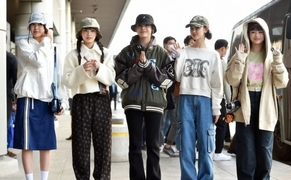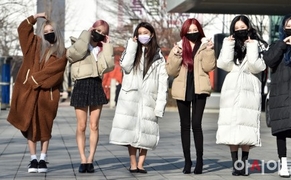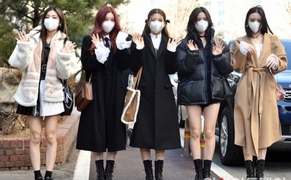 |
| People wait in line to take tests at a COVID-19 testing station in Seoul on Nov. 14, 2021./ Photographed by Lee Sun-young |
AsiaToday reporters Lee Sun-young
The number of COVID-19 patients in critical condition stayed above 480 for the second consecutive day Sunday. Most of them are found to be over the age of 60, raising concerns about the increasing trend of elderly people becoming severely ill with the virus.
South Korea’s COVID-19 cases stayed above 2,000 for the firth consecutive day Sunday. Throughout the previous day, 2,419 new COVID-19 cases were confirmed nationwide, according to the Korea Disease Control and Prevention Agency (KDCA). The number of COVID-19 patients undergoing intensive care treatment reached 483. The figure is just short of the record high of 485 reported on the previous day.
The health authorities had predicted that high vaccination rates would prevent the increase in the number of critically ill patients and deaths, but it is increasing contrary to expectations.
Of the severely and critically ill patients, more than 82 percent are aged 60 and above, with those in their 60s for 26.09 percent, those in their 70s for 29.4 percent, and those aged 80 and above for 26.71 percent. Nearly 90 percent of elderly people are fully vaccinated, but the majority of serious and critical patients are from those aged 60 and above.
The number of senior patients is also increasing. At the beginning of October, 17 percent of total confirmed cases were aged 60 and over, but the figure increased to 24 percent in just a month. In the first week of the country’s shift toward normalcy with eased restrictions, the figure soared to nearly 30 percent.
The number of deaths is also increasing significantly with the increase in the number of elderly patients in severe condition. The KDCA on Sunday reported 20 deaths from Saturday. On the previous day, the death tally reached 32, marking the highest daily figure since Jan. 8 when 35 people died from the virus. South Korea’s fatality rate is 0.78 percent; however, it stands at 4.2 percent for those in their 70s and 13.83 percent for those in their 80s.
Besides, the Greater Seoul area’s health care system is being stretched to near capacity, rekindling worries over a possible shortage. In Seoul and Incheon, the number of occupancy rate of hospital beds for critically-ill COVID-19 patients reached 75 percent, surpassing the government’s threshold for activating a contingency plan. The government previously said reaching a 75 percent intensive care bed occupancy rate would be one of the standards for putting a stop to its “living with COVID-19” plans.
The health authorities and experts point out the reason for the increasing number of severe cases among the elderly who have completed vaccination is because vaccine protection wanes over time.
“It is known that sufficiently high immune system is maintained up to 6 months after the completion of the first and second vaccinations, and it decreases sharply after 8 months,” said Song Joon-young, a professor of infectious disease at Korea University College of Medicine.
The elderly aged 60 and above began receiving their first COVID-19 vaccine shots since February. Since it has been more than six months since then, the effectiveness of preventing infection decreased. Besides, the vaccine efficacy is insufficient to prevent the more contagious delta variant, which is the dominant strain of the virus in the country.
As a result, the government is urging seniors, who got their vaccines in the first half of this year, to get their booster shots.
Besides, the government is also considering reducing the interval between the original jab and the extra shot from six months to five, specifically for senior citizens at higher-risk.
#seniors #booster shots #critically ill #COVID-19 #patients
Copyright by Asiatoday
Most Read
-
1
-
2
-
3
-
4
-
5
-
6
-
7





















